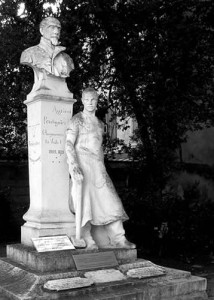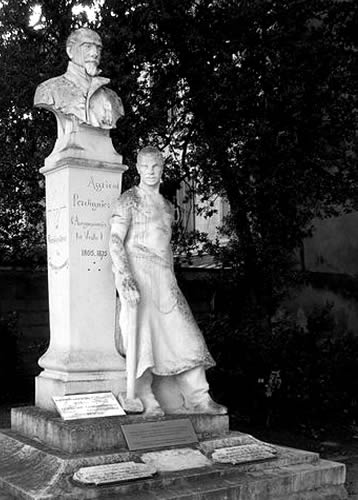Description

See the statue of Agricol Perdiguier (1805-1875) in Avignon, the carpenter and Representative of the People who wrote the first socialist history of ancient Greece and Rome. Between 1849 and 1851, just after the 1848 revolution in France, he wrote the seven volumes of his Histoire démocratique des peuples anciens et modernes. His vision of history was one of consistent struggle between the rich and poor, in which the working classes had always been the hero; he was particularly inspired by the democracy at Athens. Perdiguier was the model for the hero of George Sand’s novel Le Compagnon de Tour de France (1840), a self-educated artisan and activist.
Perdiguier drew up a syllabus for workers to read, which included the Iliad, Odyssey and Aeneid, ‘to stir the imagination, raise the level of our thought, form our taste and refresh our spirit’. He was appalled by Plato’s Republic in which the lower classes would not be allowed to read Homer and Euripides. He was truly original in his realisation that the ancient authorities can be contested: why are Greek philosophers, with their contempt for manual labour, so venerated, he asks? Why do educated people respect the many ancient authors who just peddle absurdities that have been repeated for two thousand years, in order to shore up preposterous social prejudices still being recycled in textbooks for the baccalauréat?
Despite ill health, he never ceased campaigning for workers’ rights, universal suffrage, the abolition of the death penalty, freedom of the press and religious tolerance.




